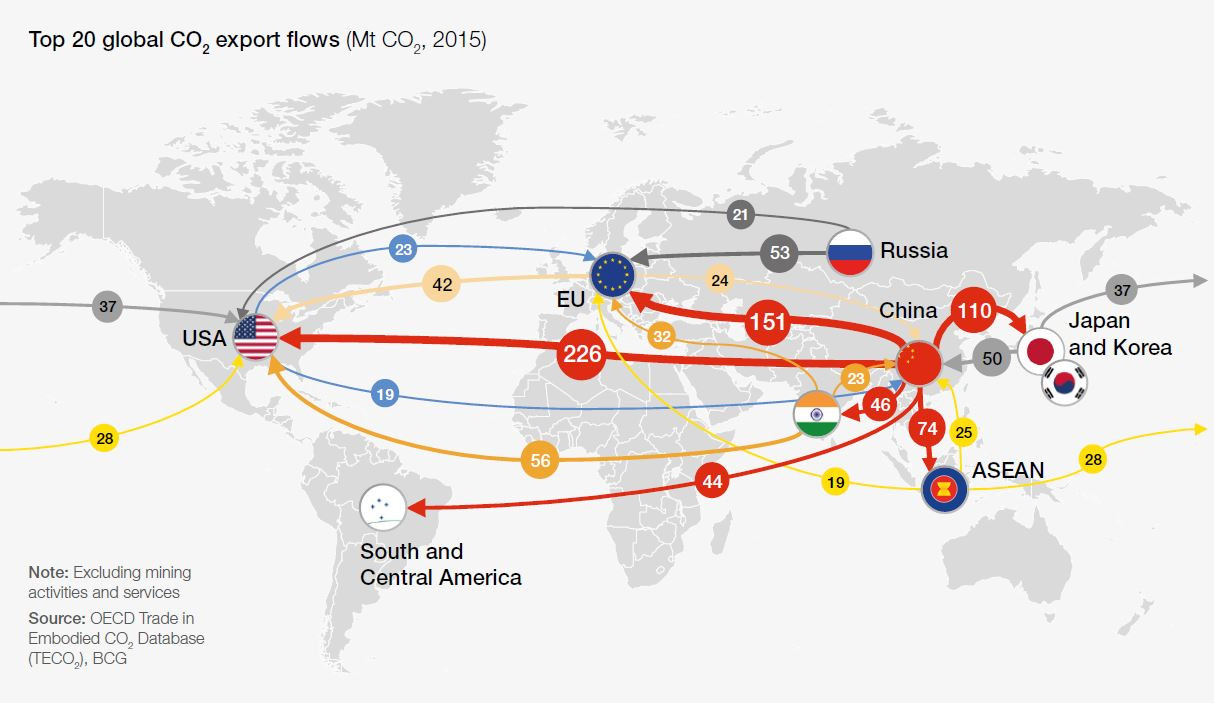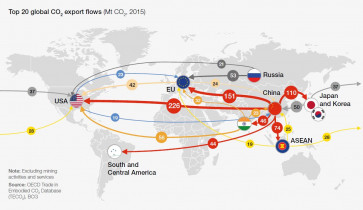Popular Reads
Top Results
Can't find what you're looking for?
View all search resultsPopular Reads
Top Results
Can't find what you're looking for?
View all search results[ANALYSIS] The supply chain opportunity in the race to zero
Southeast Asia is at the heart of many global supply chains, acting as a valued trade, investment and growth driver for the region. In the global race to net-zero, there is a growing need to recognize and tackle the carbon emissions burden of supply chains.
Change text size
Gift Premium Articles
to Anyone
S
outheast Asia is at the heart of many global supply chains, acting as a valued trade, investment and growth driver for the region. In the global race to net-zero, there is a growing need to recognize and tackle the carbon emissions burden of supply chains. This does not come at the price of affordable or accessible regional economic opportunities.
Recent research published by the World Economic Forum (WEF) and Boston Consulting Group (BCG) reveals how tackling supply-chain emissions can transform the global fight against climate change. Net-Zero Challenge: The Supply Chain Opportunity analyzes the top eight global supply chains, which together account for more than 50 percent of global greenhouse gas (GHG) emissions. The report shows that end-to-end decarbonization of these supply chains would add as little as 1 percent to 4 percent to end-consumer costs in the medium term by introducing key levers that can be easily and affordably deployed today.
Embracing responsible supply chains is a lucrative proposition, with studies revealing more than 50 percent of consumers in Western markets will pay more for sustainable products. This sentiment is echoed in many mature markets, with demand for sustainably marketed products growing seven times faster than contemporary counterparts over the last five years. Failing to address supply chain emissions may soon position Indonesia at a disadvantage in global trade.
Our changing world
2021 is a year which hints at hope. It marks the delayed 2021 United Nations Climate Change Conference (COP26) — a vital crossroads in our shared emissions mitigation efforts.
The world’s commitment to defeat the COVID-19 pandemic has illuminated the remarkable actions we can take to overcome adversity. As we look toward the potential impact of a 2-degrees-Celsius global warming pathway, it is clear action at a deeper and wider scale is needed now.
We have seen momentum grow in 2020. The United Kingdom and the European Union are committed to net-zero by 2050. South Korea and Japan both recently committed to net-zero emissions by 2050. China — the world’s largest GHG emitter — has committed to net-zero emissions no later than 2060. With United States President Joe Biden’s pledge to achieve net-zero by 2050, trade partners accounting for half of ASEAN’s total trade value will soon have established net-zero targets.


















